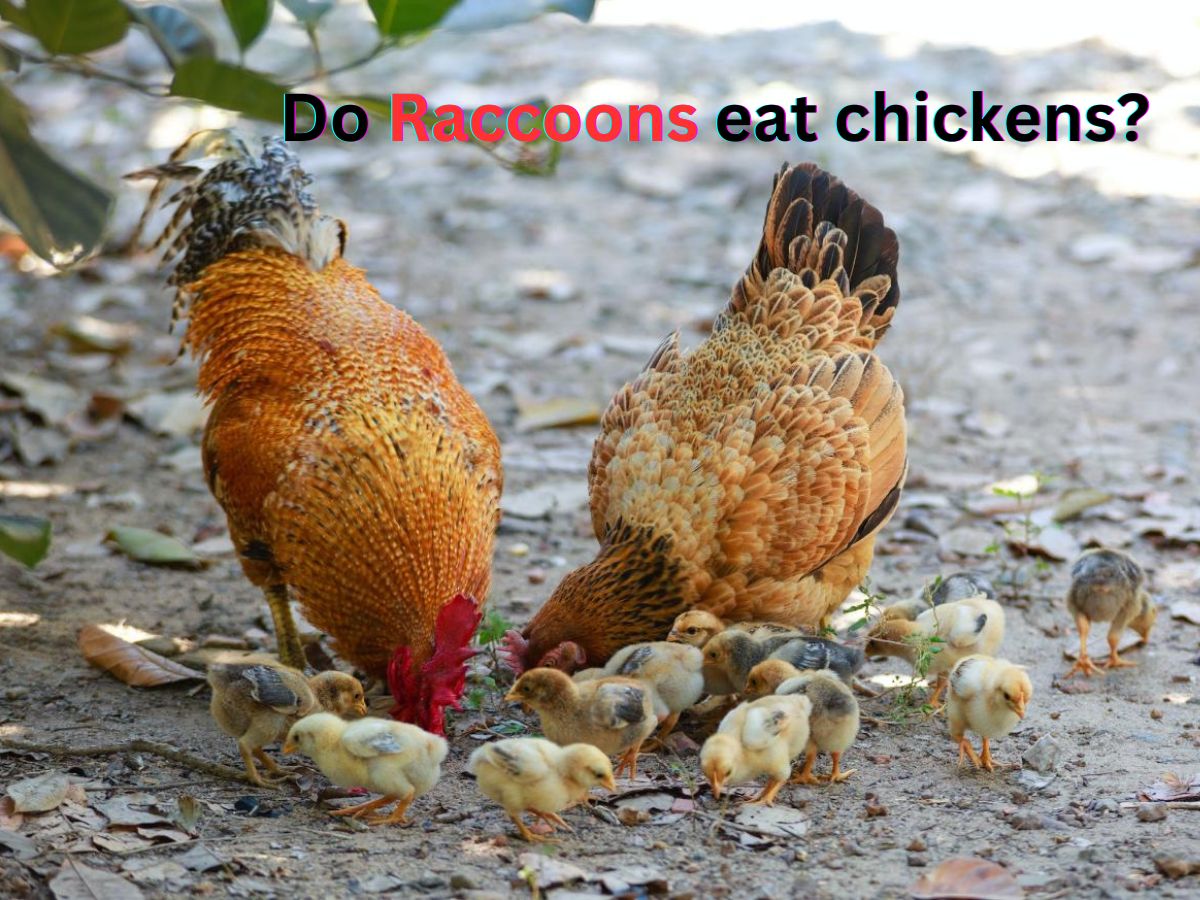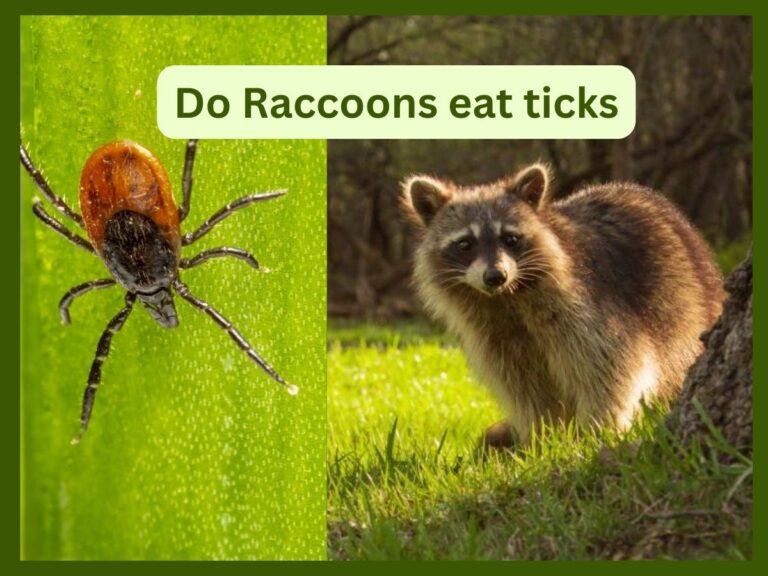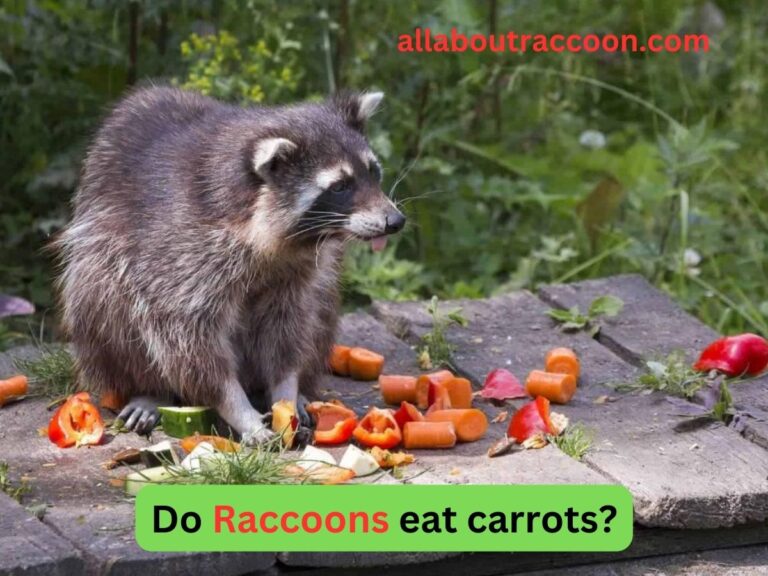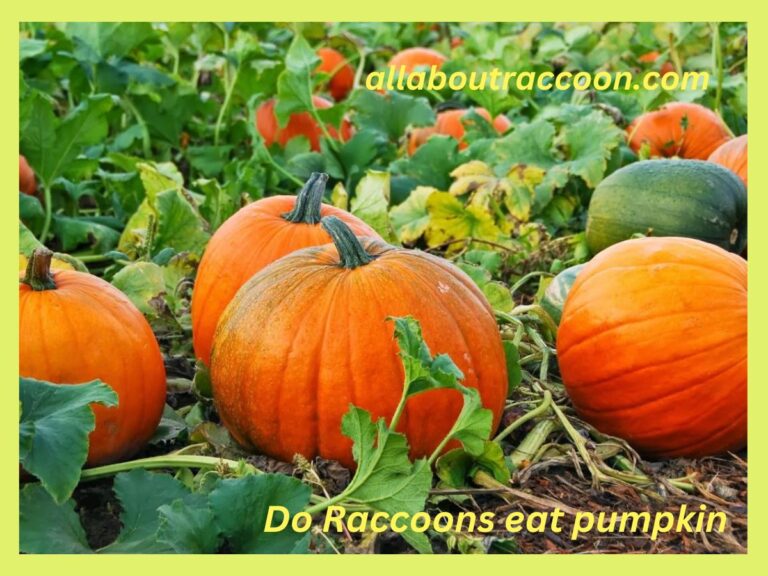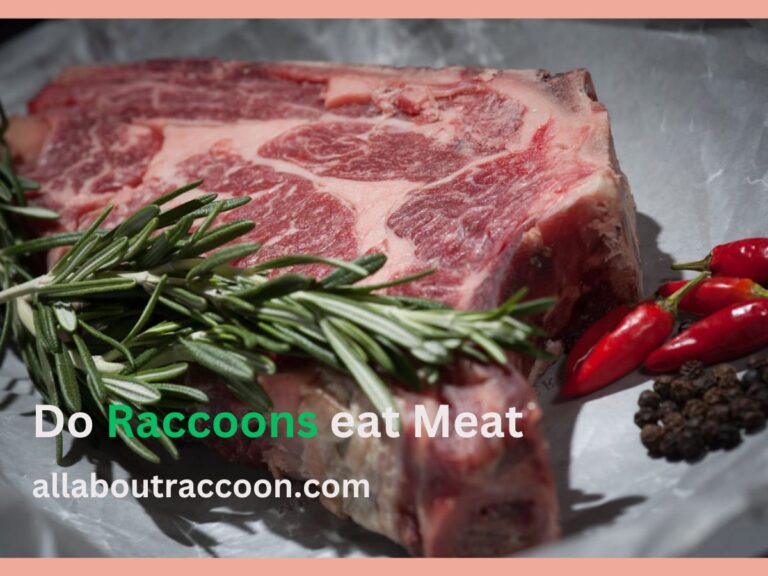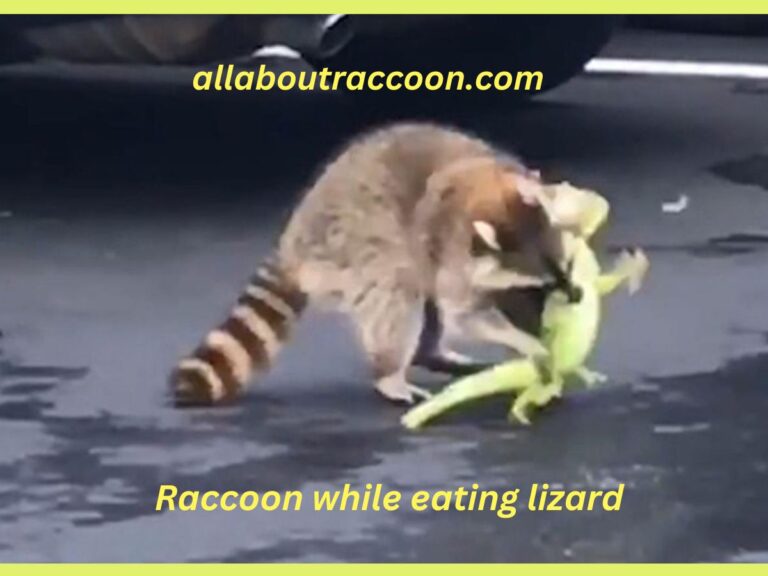Do Raccoons Eat Chickens?-Nutritious Guide
Raccoons are cute and native to North America. But at the same time, they can cause a nuisance for humans and pets. So, have you ever wondered whether those mischievous masked creatures have a taste for poultry? The age-old question, “Do raccoons eat chickens?” has raised a debate between chicken keepers and nature enthusiasts alike.
In this article, we’ll dive into the intricate world of raccoon behavior, and explore their dietary habits. Today, it’s our address to whether raccoons eat chickens or not. So let’s know the truth.
Do Raccoons eat chickens?
Yes, raccoons eat chickens and their eggs. Raccoons are opportunistic omnivores, which means they have a varied diet and will eat whatever is available to them. Raccoons are meat lovers as meat is a basic part of their diet. Thus, chickens and their eggs are attractive food sources for raccoons due to their accessibility and nutritional value. Normally, they attack chicken coops at night time. The reason is that raccoons are nocturnal mammals so they become active at night and forage for their food.
Consequently, backyard chickens face a considerable risk when raccoons are nearby. Raccoons use their sharp claws and teeth to hurt the chickens badly. Additionally, raccoons can bring sickness and tiny pests to poultry, like avian influenza, salmonella, fleas, and mites, which can harm them.
Raccoons’ eating impact on chickens:
These clever masked bandits are well-known for their scavenging behavior. They live in different places and eat all sorts of foods. Raccoons like to hunt chickens and eat their eggs. In truth, raccoons have a significant impact on chicken populations as they are chicken predators. Given the opportunity, they will certainly prey on chickens, displaying a particular fondness for both the birds and their eggs.
If you are a chicken owner, it’s crucial to take preventive measures to safeguard your flock from raccoon attacks. Implementing effective precautions becomes essential to ensure the safety and well-being of your chickens.
Chickens are domesticated birds:
Here is a brief intro to birds:
- Chickens are birds that people raise mainly for their meat and eggs. They’re like the cousins of wild birds called red junglefowl from Southeast Asia.
- Chickens are not too big, not too small. They have round bodies, small heads, and short pointy beaks. Amazingly, they have feathers that come in a wide range of colors and patterns.
- They typically have two legs with scales on their lower legs and feet. Chickens are social animals that often live in groups called flocks.
- Chickens are super common around the world. People have been caring for them for thousands of years, breeding and choosing special ones for different reasons.
Why do raccoons eat chickens?- Some basic reasons!
Raccoons are omnivorous and eat many different foods, both plants and animals. Amazingly, they’re good at catching small animals and finding eggs. It would not be wrong to say that raccoons are meat lovers. So if they have a chance to catch a chicken, they will never hesitate to eat it. In truth, they’ve evolved to be skilled hunters and can easily hunt the chickens. Additionally, there are some basic reasons for raccoons eating chicken:
Easy to Catch:
Chickens are relatively easy to catch prey for raccoons. They can easily catch the chickens, especially when kept outside in a coop. Raccoons are good at climbing, so they can easily get to the chickens by going over fences, up trees, or onto buildings.
Nutritional Richness:
Chicken meat is not only tasty but also rich in nutrition. So, chickens and their eggs are like a tasty and nutritious meal for raccoons. They have lots of essential nutrients like proteins, iron, zinc, and potassium. These nutrients provide an energy boost to raccoons’ bodies to stay healthy and active. This is especially important when raccoons can’t find much else to eat.
Opportunistic Feeding:
Interestingly, raccoons are opportunistic eaters, not picky eaters. It means they eat the food that is easily available to them. They can eat even food scrapes from trash cans. So, If they see chickens around they will attack them and make their evening meal beautiful and enjoyable.
How to Identifying Raccoon Attacks on Your Chickens?
Now question arises of how to identify the raccoon’s attack on backyard chickens. So, here are some important signs to estimate that raccoons are scavenging and eating chickens:
Missing Chickens:
If you notice that the baby chickens and adult chickens suddenly go missing, make sure that the raccoons are responsible. The scattered feathers, scattered body parts, and holes in the other chickens are the indicators of raccoon attack.
Disturbed Coop:
Raccoons are clever and determined animals. If they managed to get into your coop in the past, they might come back. Look closely at the wire mesh, doors, and windows to see if they’re damaged. If you see scratches and bent wires, it means they tried to get in.
Distinct Tracks:
Raccoons often dig around chicken coops. If you notice random holes next to the coop, it could be a sign of a raccoon. Raccoon footprints have a recognizable five-toe pattern. Additionally, the raccoon’s pop and urine around the coops is also a sign of raccoon’s entry.
Scattered Feathers and Blood:
If raccoons attack the chickens, you will find scattered feathers and blood near the coop. Things can get messy by the attack of raccoons. So, If you see feathers, eggshells, and body parts of chickens all around the coop, it’s likely because of raccoons.

Will raccoons attack and eat backyard chickens?
Yes, raccoons are known to attack and eat backyard chickens. Raccoons are opportunistic omnivores, which means they have a varied diet that includes both plant and animal matter. These creatures mainly consume fruits, insects, and small mammals as their primary sources of sustenance. Additionally, they also can prey on smaller creatures such as chickens and Squirrels.
Raccoons are clever and curious animals that can easily find ways to breach chicken coops, especially if the coop is not properly secured. If they get inside a chicken coop, these animals can cause big problems. They can hurt or even kill the chickens. Thus, they eat different parts of the chickens, like eggs and baby chicks. Once they finish, the area becomes messy. Feathers are scattered all over, and there are pieces of chickens everywhere.
How do the raccoons find chicken?
Raccoons have a keen sense of smell, sight, and dexterity, which allows them to find and access chicken coops. Here’s how they typically locate chickens:
Smell: Raccoons have a great sense of smell. They can smell chickens, their food, and even eggs from far away. If your coop area smells strongly of chickens or their feed, it can bring raccoons closer.
Noise: Chickens are noisy, especially in the morning and evening when they’re active. Raccoons are smart eaters and are more likely to come to places where they hear, like chicken noises or scratching sounds.
Visual Clues: Raccoons are curious creatures and are drawn to the sight of chickens moving around. They can observe your chickens from a distance and recognize them as potential food sources.
Previous Successful Attempts: Once a raccoon successfully accesses a chicken coop, it’s likely to return. Raccoons have good memory and can remember places where they’ve found food before. So they come again and again chicken coop.
Food resources: Raccoons eat lots of different things because they’re omnivores. They can be attracted to your place if there’s other food around, like garbage or pet food. This could make them more likely to find your chickens.
How to protect your chickens from raccoons?
Here are the key steps to prevent raccoons from attacking your chickens:
1. Secure Food Sources:
- Avoid Open Feeders: Raccoons are attracted to easily accessible food sources. Open feeders can be an invitation for raccoons to enter your chicken coop. So make sure to avoid open feeders like pet food and garbage cans. Similarly, closed feeders prevent raccoons from reaching in and grabbing food.
- Monitor Eggs and Chicks: Raccoons eat well on eggs and small animals like chicks. If raccoons see eggs, they are attracted to your coops. By removing eggs, you remove a potential food source for raccoons. So, you should monitor eggs and chicks regularly
2. Upgrade Fencing and Locks:
- Secure Coops and Enclosures: You should make your coops and enclosures sturdy and well-constructed. Additionally, inspect them regularly to check the weaknesses or damages.
- Reinforce Doors and Windows: Raccoons use their dexterity and intelligence to manipulate simple locks and latches. So you should Strengthen the doors and windows of your coops. Moreover, use more complex locking mechanisms that are challenging for raccoons to open.
- Install Electric Fencing: Electric fencing is a highly effective deterrent against raccoons and other predators. Ensure to Install it around your chicken coops or enclosure. The mild electric shock can act as a strong deterrent to keep raccoons away from your valuable chickens.
3. Deterrence Measures:
- Motion-Activated Deterrents: Motion-activated gates are designed to detect nearby movement. So, when a raccoon enters the device’s monitored area, it triggers a response. This response can be a loud noise, bright lights, or even a splash of water. This reaction scares the raccoon.
- Cameras for Monitoring: Install security cameras on your property for watching raccoons. Cameras record their actions and break-in attempts. This helps find raccoons and learn their habits. So, by watching closely, you can change your plans to keep them away.
4. Implementing Deterrence:
- Bright Lights and Loud Noises: Raccoons don’t like surprises. Bright lights and loud noises surprise them, like a party they don’t like. It makes them feel bothered and not cozy. Raccoons like dark and quiet places. So, when you use bright lights and loud sounds, they feel uneasy and go somewhere else.
- Ammonia-Soaked Rags: Raccoons don’t like bad smells. Ammonia is a smelly thing they don’t like. Thus, ammonia is the best deterrent for raccoons. Spray ammonia-mixed water near the chicken coops to deter them.
- Cayenne Pepper: Similarly raccoons don’t like the smell of cayenne pepper. You can deter raccoons by planting cayenne pepper around your chicken coops.
Conclusion:
In the end, the answer to “Do raccoons eat chickens?” is a cautious yes. These intelligent creatures consider your chickens as part of their menu. They love to eat chickens as a spicy food. indeed, chicken meat provides essential nutrients to the raccoons body. These nutrients provide a significant energy boost to derive their metabolic activities. Raccoons are opportunistic eaters, so if they have a chance to eat chickens, they will eat them. So, you should take some effective steps to deter raccoons to prevent them on chicken coops.
FAQs:
Yes, absolutely! Raccoons are omnivorous and love to eat chickens. Chicken meat is full of nutrients for raccoons.
Raccoons kill chickens just for eating them. In truth, raccoons kill chickens and then enjoy to eat them. Raccoon’s hunting skills help them to hunt chickens very effectively.
Yes, raccoons like to eat chickens, baby chickens, and eggs. Being omnivorous meat is a basic part of their daily meal. It would not be wrong to say that raccoons have a great fondness for meat.
Yes, raccoons kill poultry. In truth, raccoons are a big threat to poultry. They attack chicken coops and steal away the chickens for eating purposes.
Yes, raccoons can rip chickens’ heads. It’s a common thing that if chicken found without a head is often the victim of raccoons. Raccoons are very skillful in hunting. They can reach the fence wire and pull the head of the chicken through this wire while the remaining body is left behind.

